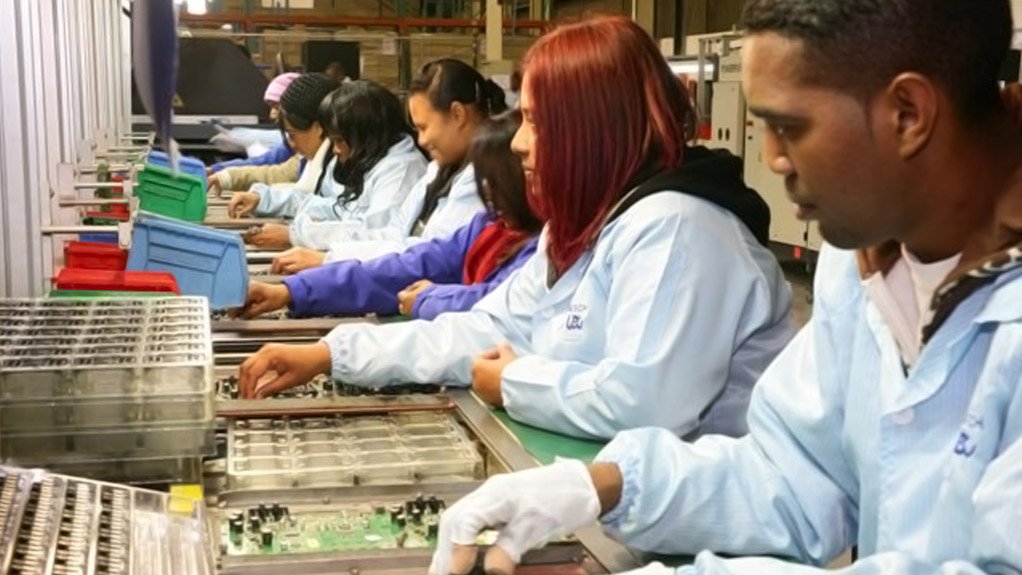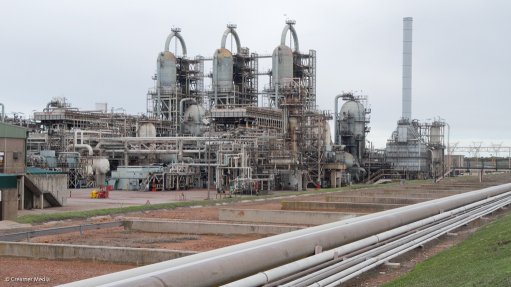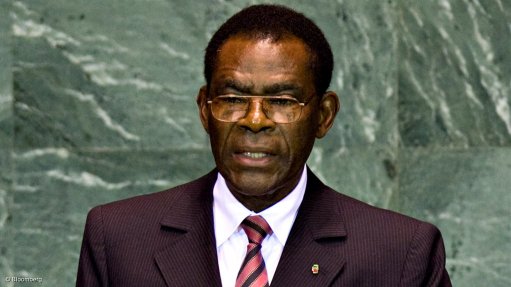Davies pushes for more local procurement
Trade and Industry Minister Dr Rob Davies has assured that the Department of Trade and Industry (DTI) would be “playing its part” in ensuring that government procured 75% of its goods and services from local companies, announcing on Tuesday the next designation of products for government procurement.
These included steel, conveyance pipes, transformers, building and construction materials and rail signalling and components.
“To add to this momentum, the private sector needs to buy more from local companies and indeed made such an undertaking in the Local Procurement Accord signed a few years ago,” Davies said in his Budget Vote speech to Parliament on Tuesday night.
He added that, within the President’s Business Government Working Group on Inclusive Growth, discussions were under way to secure the concrete commitment of the top 80 JSE-listed firms to purchase increasing proportions of their inputs from local companies.
In addition, over the coming year, the DTI would work closely with the Industrial Development Corporation (IDC) and the Economic Development Department to scale-up IDC support for industrialisation and achieve a greater cohesion with the deployment of the various DTI incentives.
To facilitate broader economic participation, Davies said the department would start implementing the Broad-Based Black Economic Empowerment (BBBEE) Amendment Act, which was signed into law in January 2014.
“The BBBEE Act and its accompanying Codes of Good Practice seek to increase alignment between BBBEE activities and government’s objectives of industrialisation, localisation, skills development and job creation,” he stated.
Meanwhile, Davies reiterated his department’s commitment to boosting South Africa’s manufacturing capabilities, stating that the DTI “remained convinced” that efforts to grow manufacturing were fundamental to placing the economy on a new path of sustainable growth.
Davies told Parliament that the DTI envisaged, in particular, an “acceleration” in the automotive sector, in which government’s Automotive Production Development Programme (APDP) had already supported “significant” new investment in the sector.
“Projected capital expenditure [for this programme] in 2014 is anticipated to reach a record level of R7.9-billion.
“Moreover, adjustments to the APDP and the designation of buses in terms of the Preferential Procurement Policy Framework Act (PPPFA) have resulted in automotive makers Mercedes-Benz, Volvo and MAN winning tenders to provide locally assembled buses for commuter bus expansions and for the production of the uniquely South African S’esfikile taxi,” he commented.
Davies added that, in the coming year, the APDP would undergo an early review which would allow the department to “take stock of efforts” and determine what more could be achieved in growing the industry in South Africa.
“In addition, the Automotive Supply Chain Competitiveness Initiative, launched in 2013 to enhance localisation, production and supplier capabilities, is proving to be successful and we will continue to expand the programme,” he outlined.
Meanwhile, the Minister highlighted that, since the introduction of the Automotive Investment Scheme (AIS) – an incentive designed to grow and develop the automotive sector through investment in new or replacement models and components – in 2010, public sector-approved incentives had amounted to R6.3-billion and supported R23-billion in investment by original-equipment manufacturers in the automotive sector.
“Given that automotive manufacturing comprises 30% of our industrial sector with strong linkages to other manufacturing subsectors, the impact of such investment on our domestic economy is significant,” he outlined.
According to the Automotive Export Manual Report 2014, exports of vehicles and components increased by 8.2%, from R94.9-billion in 2012, to R102.7-billion in 2013.
“It is an important sector and we will continue to support it,” Davies maintained.
CLOTHING & TEXTILES
Describing South Africa’s clothing, textiles, leather and footwear sectors as a sector that had previously been “written off”, the Minister noted that this industry had now emerged as an important labour-absorbing sector after being “successfully stabilised” through the introduction of “a number of inter-related measures”.
These included improved monitoring of imports to ensure compliance to reduce unfair and illegal imports, the designation of the sector under the PPPFA, the introduction of the Clothing & Textile Competitiveness Programme (CTCP,; and the creation of two new regional footwear clusters in KwaZulu-Natal and the Southern Cape.
“In the coming year, the department will continue to roll out the CTCP to reach more companies within the sector and I will, in the near future, announce details of a significant programme to increase value addition in the exotic leather and animal hide industries through the National Exotic Leather Cluster,” he outlined.
METAL & RAIL TRANSPORT
Meanwhile, the country’s metal fabrication, capital and rail transport equipment sectors, which Davies described as the “bedrock” of a modern industrial economy, had achieved successes and growth through several DTI-led initiatives.
He said the work of the National Tooling Initiative and the Gauteng Foundry Training Centre had been pivotal in securing substantial local content commitments in Transnet and the Passenger Rail Agency of South Africa’s rail rolling-stock renewal plans.
“Indeed, the localisation successes in renewable energy and buses and rail rolling-stock will become the yardstick against which localisation of government procurement is measured,” he noted.
To unlock the value of localisation for South Africa, Davies added, further refinement of procurement legislation would be required, including a focus on compliance across all tiers of government and improving the transversal procurement processes.
FOREIGN DIRECT INVESTMENT
Davies, meanwhile, assured Parliament that the country recognised the importance of foreign direct investment (FDI), saying South Africa was, and would remain, open to offshore investment.
“Openness is reflected in the stock of FDI in South Africa, which now accounts for around 42% of our gross domestic product. Inward flows also continue to grow, and over the last five years, South Africa accounted for the bulk of new investment projects in Africa, with investment arriving from the US, the EU and, increasingly, from China, India and other Asian countries,” the Minister explained.
In support of enhanced investment, Davies said the DTI’s investment arm – Trade and Investment South Africa – had developed an investment pipeline of some R60.5-billion of potential investment projects for the 2013/14 fiscal year.
The Minister, however, acknowledged that the recent draft Promotion and Protection of Investment Bill had generated “some negative comment”.
“The reality is that this Bill will ensure that all domestic and foreign investors will be treated equally on the basis of the principle of non-discrimination and substantial protection of investor rights, based on the Constitution” he noted.
UNLOCKING REGIONAL TRADE
South Africa would, meanwhile, continue to champion broader regional integration through the Southern African Customs Union, The Southern African Development Community (SADC) and the envisaged Tripartite Free Trade Area (TFTA), which spanned Eastern and Southern Africa.
Davies said the DTI had taken the view that the priority for Africa’s regional integration programme should be to broaden integration at an FTA level across existing regional economic communities within a developmental paradigm that gave priority to infrastructure development and cooperation to promote industrialisation.
“We believe that such a programme will enable us to diversify our export base, promote greater intra-African trade and investment, and support regional industrialisation. The conclusion of the TFTA is critical for Africa’s integration and development, as well as providing the basis for the envisaged Continental FTA,” he commented.
The department would work with other SADC member States to ensure full implementation of the SADC Trade Protocol.
South Africa would also ensure that it continued to deepen economic development, trade, and investment partnerships with the Brazil, Russia, India, China and South Africa (Brics) through the work of the Brics Contact Group for Economic and Trade Issues.
Comments
Press Office
Announcements
What's On
Subscribe to improve your user experience...
Option 1 (equivalent of R125 a month):
Receive a weekly copy of Creamer Media's Engineering News & Mining Weekly magazine
(print copy for those in South Africa and e-magazine for those outside of South Africa)
Receive daily email newsletters
Access to full search results
Access archive of magazine back copies
Access to Projects in Progress
Access to ONE Research Report of your choice in PDF format
Option 2 (equivalent of R375 a month):
All benefits from Option 1
PLUS
Access to Creamer Media's Research Channel Africa for ALL Research Reports, in PDF format, on various industrial and mining sectors
including Electricity; Water; Energy Transition; Hydrogen; Roads, Rail and Ports; Coal; Gold; Platinum; Battery Metals; etc.
Already a subscriber?
Forgotten your password?
Receive weekly copy of Creamer Media's Engineering News & Mining Weekly magazine (print copy for those in South Africa and e-magazine for those outside of South Africa)
➕
Recieve daily email newsletters
➕
Access to full search results
➕
Access archive of magazine back copies
➕
Access to Projects in Progress
➕
Access to ONE Research Report of your choice in PDF format
RESEARCH CHANNEL AFRICA
R4500 (equivalent of R375 a month)
SUBSCRIBEAll benefits from Option 1
➕
Access to Creamer Media's Research Channel Africa for ALL Research Reports on various industrial and mining sectors, in PDF format, including on:
Electricity
➕
Water
➕
Energy Transition
➕
Hydrogen
➕
Roads, Rail and Ports
➕
Coal
➕
Gold
➕
Platinum
➕
Battery Metals
➕
etc.
Receive all benefits from Option 1 or Option 2 delivered to numerous people at your company
➕
Multiple User names and Passwords for simultaneous log-ins
➕
Intranet integration access to all in your organisation





















